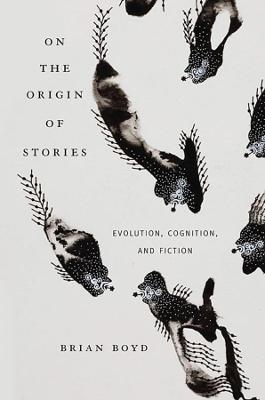
On the Origin of Stories
The Belknap Press (Verlag)
978-0-674-05711-1 (ISBN)
A century and a half after the publication of Origin of Species, evolutionary thinking has expanded beyond the field of biology to include virtually all human-related subjects—anthropology, archeology, psychology, economics, religion, morality, politics, culture, and art. Now a distinguished scholar offers the first comprehensive account of the evolutionary origins of art and storytelling. Brian Boyd explains why we tell stories, how our minds are shaped to understand them, and what difference an evolutionary understanding of human nature makes to stories we love.
Art is a specifically human adaptation, Boyd argues. It offers tangible advantages for human survival, and it derives from play, itself an adaptation widespread among more intelligent animals. More particularly, our fondness for storytelling has sharpened social cognition, encouraged cooperation, and fostered creativity.
After considering art as adaptation, Boyd examines Homer’s Odyssey and Dr. Seuss’s Horton Hears a Who! demonstrating how an evolutionary lens can offer new understanding and appreciation of specific works. What triggers our emotional engagement with these works? What patterns facilitate our responses? The need to hold an audience’s attention, Boyd underscores, is the fundamental problem facing all storytellers. Enduring artists arrive at solutions that appeal to cognitive universals: an insight out of step with contemporary criticism, which obscures both the individual and universal. Published for the bicentenary of Darwin’s birth and the 150th anniversary of the publication of Origin of Species, Boyd’s study embraces a Darwinian view of human nature and art, and offers a credo for a new humanism.
Brian Boyd, University Distinguished Professor in the Department of English, Drama and Writing Studies, University of Auckland, is the world’s foremost authority on the works of Nabokov.
* Illustrations * Acknowledgments * Introduction: Animal, Human, Art, Story Book I: Evolution, Art, and Fiction Part 1 Evolution and Nature * Evolution and Human Nature? * Evolution, Adaptation, and Adapted Minds * The Evolution of Intelligence * The Evolution of Cooperation Part 2 Evolution and Art * Art as Adaptation? * Art as Cognitive Play * Art and Attention * From Tradition to Innovation Part 3 Evolution and Fiction * Art, Narrative, Fiction * Understanding and Recalling Events * Narrative: Representing Events * Fiction: Inventing Events * Fiction as Adaptation Book II: From Zeus to Seuss: Origins of Stories Part 4 Phylogeny: The Odyssey * Earning Attention (1): Natural Patterns: Character and Plot * Earning Attention (2): Open-Ended Patterns: Ironies of Structure * The Evolution of Intelligence (1): In the Here and Now * The Evolution of Intelligence (2): Beyond the Here and Now * The Evolution of Cooperation (1): Expanding the Circle * The Evolution of Cooperation (2): Punishment Part 5 Ontogeny: Horton Hears a Who! * Problems and Solutions: Working at Play * Levels of Explanation: Universal, Local, and Individual * Levels of Explanation: Individuality Again * Levels of Explanation: Particular * Meanings * Conclusion * Retrospect and Prospects: Evolution, Literature, Criticism * Afterword * Evolution, Art, Story, Purpose * Notes * Bibliography * Index
| Erscheint lt. Verlag | 15.12.2010 |
|---|---|
| Zusatzinfo | 14 halftones |
| Verlagsort | Cambridge, Mass. |
| Sprache | englisch |
| Maße | 156 x 235 mm |
| Themenwelt | Geisteswissenschaften ► Sprach- / Literaturwissenschaft ► Anglistik / Amerikanistik |
| Geisteswissenschaften ► Sprach- / Literaturwissenschaft ► Literaturwissenschaft | |
| Naturwissenschaften ► Biologie ► Evolution | |
| ISBN-10 | 0-674-05711-2 / 0674057112 |
| ISBN-13 | 978-0-674-05711-1 / 9780674057111 |
| Zustand | Neuware |
| Haben Sie eine Frage zum Produkt? |
aus dem Bereich


